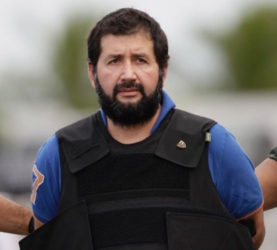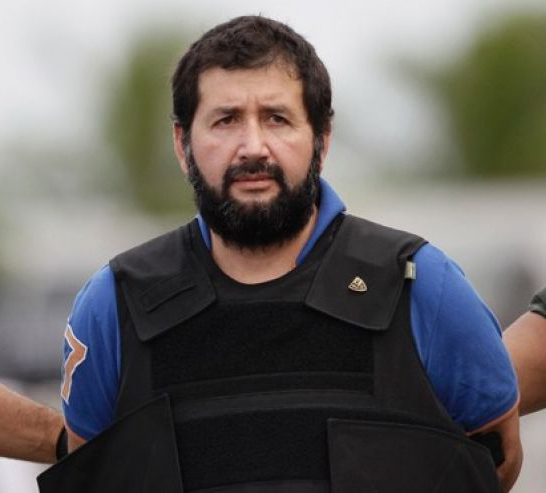NEW YORK (Reuters) – A Colombian drug kingpin was sentenced yesterday to 35 years in a US prison for engaging in a multimillion dollar scheme to manufacture hundreds of tons of cocaine that he trafficked throughout the world.
Daniel Barrera Barrera, also known as “Loco” (Crazy), was sentenced by US District Judge Gregory Woods in Manhattan after pleading guilty to various narcotic-related charges and to having conspired to engage in money laundering.

Woods, who also fined Barrera $10 million and ordered him to forfeit the same amount, called the Colombian national a “smart, talented, maybe even gifted man” who went from working as a farm hand to heading a violent drug trafficking organization.
“Simply put, the scope of the offence here is staggering,” Woods said.
Speaking through a Spanish translator before the sentence was imposed, Barrera said he wanted the opportunity to be released from prison someday and see his grandchildren.
“I ask for my family’s forgiveness for all of the suffering I have caused them,” he said.
According to authorities, Barrera, 48, had been one of the most prolific drug traffickers of the last two decades before his capture in Venezuela in 2012 following years in hiding.
Prosecutors said that from 1998 to 2010, Barrera ran a cocaine manufacturing and trafficking syndicate that produced an estimated 5,000 kilogrammes of cocaine a month, resulting in more than 720 tonnes of cocaine being produced during the scheme.
Barrera bought raw cocaine paste from the leftist rebel group FARC and processed it in laboratories in areas controlled by a now-demobilized paramilitary group, the United Self-Defense Forces of Colombia, or AUC, authorities said.
The drug empire generated tens of millions of dollars, which Barrera laundered, and protected by dozens of armed guards and enforcers, many of whom at his direction threatened or killed individuals who owed money or posed a threat, prosecutors said.
Barrera was extradited from Colombia in July 2013 to the United States, where he faced three separate indictments in Manhattan, Brooklyn and Miami.
Ruben Oliva, Barrera’s lawyer, in court called the sentence “unreasonable and greater than necessary.”
He had sought leniency given that his client attempted to cooperate with authorities, including offering information to locate a FARC bomb maker and by encouraging other drug traffickers to surrender.
But Assistant U.S. Attorney Soumya Dayananda said authorities declined to extend any cooperation agreement to Barrera.
“The magnitude of the defendant’s violence and drug trafficking outweighed any cooperation he could provide,” she said.

